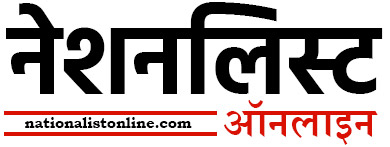ANIRBAN GANGULY
Prime Minister Narendra Modi’s message at the BJP National Council meet at Kozhikode on 24th and 25th September 2016, was in line with the vision of governance and of India that Pandit Deendayal Upadhyaya had envisaged through his political philosophy of Integral Humanism. In fact, the National Council meet at Kozhikode was historic in many ways. It announced the celebrations of Pandit Upadhyaya’s centenary and pledged to undertake a countrywide effort to spread his integral and uniting philosophy. It also saw a clear and unequivocal articulation by BJP national president Shri Amit Shah on the need to fight to the finish while taking on terrorism. “This battle may be a protracted one” his statement said, “but we shall fight it to the finish. We are confident that our Army will have the final victory.” These message instilled hope and energy, especially in those whose concern is always India’s well-being.
Prime Minister’s Eight-fold Sutra for national growth, development and integration, encompassed the entire gamut of action and activities that his government has initiated so that India can take lead in the 21st century. The Sutras give a clear direction for action that is needed to raise India to the next stage as a leading power. Prime Minister talked of freeing India from poverty and replacing it with prosperity, of replacing discrimination with equality-equity, of replacing dirt with cleanliness, of replacing unemployment with employment and opportunities, of replacing despair with hope, of restoring the dignity of women by ending exploitation, of replacing corruption with transparency and of replacing injustice with justice.
Prime Minister’s Eight-fold Sutra for national growth, development and integration, encompassed the entire gamut of action and activities that his government has initiated so that India can take lead in the 21st century. The Sutras give a clear direction for action that is needed to raise India to the next stage as a leading power.
The fulfilling of the Eight-fold Sutras is the duty of every conscious citizen and around them has to be gradually created a national movement. By articulating them before a mammoth gathering at Kozhikode Prime Minister has himself re-affirmed his own commitment to achieving these. Pandit Deendayal Upadhyaya’s centenary is also an appropriate period when one ought to systematically work to see these achieve fruition. The message of “Samriddhi” and “Suraksha” also clearly emerged out of the meet.
Reference was also made to how Pandit Deendayal Upadhyaya built the party and how the Bharatiya Jana Sangh during his period and later the BJP have always been organisation and workers based parties which have always India’s national interest, her prosperity, her security and sovereignty at the core of their political philosophy. These were and are workers and India centric parties. Pandit Deendayal Upadhyaya and the legions of leaders and workers who worked with him or whom he created and nurtured had this defining vision and inspiration before them.
At a time when most political parties are either rudderless, or suffering from internal squabbles, dynastic debilitation and plain directionlessness, this reiteration coming from the principal national party and its leadership is indeed hope generating and are the results of a sustained political and ideological movement.
The message from Kozhikode of 2016 resonated with the spirit of India – the commitment to work for her prosperity and self-reliance and for the ultimate triumph of the vision of her that nationalists across generations have seen and aspired for.
(The writer is a columnist.)
